From witchcraft to puzzles: strange and unique ways to overcome burnout
11 févr. 2021
6min
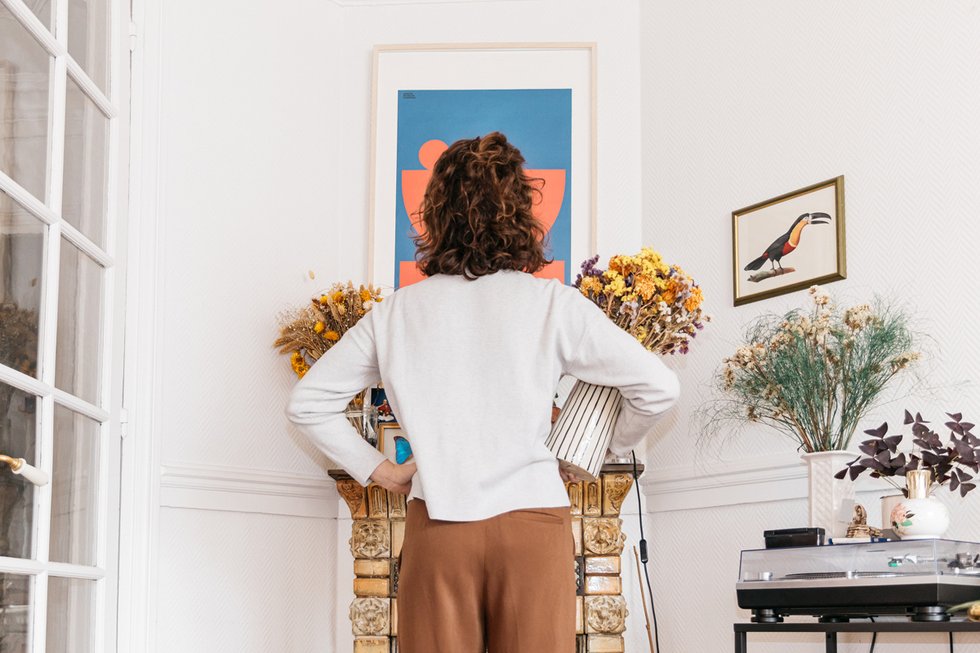

Journalist
Rest, exercise, and therapy are all touted as treatments for professional burnout, a condition that can have significant and long-lasting effects on our physical and mental health. But are they always the answer? Perhaps overcoming burnout is more personal. Here we talk to professionals who have found *unusual solutions for beating burnout and finding work-life balance.
Whitney Barkley describes herself as a people pleaser who, in normal circumstances, finds it hard to say no at work. But in 2020 something strange happened: she started to find it even harder to say yes. Barkley, a content marketing strategist who runs her own company, started to feel a physical sensation weighing in her chest when work offers came her way. Taking these offers on felt “almost like I was being disloyal to myself”, she said. “I felt like my body took a toll from those decisions.”
There was a psychological toll too. As her aversion to work grew, the days started to merge together. “Everything that used to make sense, no longer made sense,” she said. “I would get emails and literally just curl up because I didn’t want to respond.”
Barkley was suffering from burnout, an occupational phenomenon officially recognized by the World Health Organization in 2019. The WHO defines burnout as the result of “chronic workplace stress that has not been successfully managed”, which has the following symptoms:
- Feelings of energy depletion or exhaustion.
- Increased mental distance from your job, or feelings of negativism or cynicism related to your job.
- Reduced professional efficacy.
All of these were true for Barkley. “It left me so tired, I just wanted to walk away from my work,” she said.
Burnout: an increasingly common experience
It is no shock that 2020 saw a dramatic increase in stress, anxiety, and depression, but 2021 also saw a heightened rate of burnout in American workers across a broad range of professions. According to American Psychological Association’s 2021 Work and Well-being Survey, 79% of employees had experienced work-related stress. Despite this, burnout is not classed as a medical condition in the US and many people don’t visit a doctor when work stress becomes overwhelming, choosing to find their own unique solutions for recovery instead.
This was the case for James Hughes, who was working as marketing director at a wedding music agency when the health crisis threw the company into disarray. Overnight, he began receiving upwards of 150 emails a day from couples devastated that their wedding plans were ruined. “I started work at nine and finished at midnight and I couldn’t clear the emails that had come in that day,” he said. “It was just this overwhelming feeling of working harder than I’ve ever worked in my life and literally achieving nothing.” Lockdown compounded this: “[I felt] trapped in a room with my laptop and those emails.”
By the time it became clear that the business was no longer tenable, he was physically exhausted and his mental health had deteriorated. “I could see no way out,” said Hughes. “I literally called my mom and just cried because I was at the absolute end. I could see no way to deal with the situation.”
Finding peace in unusual places
Stress relief came from an unlikely source. Scrolling through YouTube one evening, Hughes chose a video at random—and became completely absorbed by it. “It was a super long video,” he said. “The host was solving this really cool sequential puzzle. I really focused on watching him and I didn’t think about all the other stuff that was going on around me.” For the first night in a long time, James didn’t fall asleep worrying about his inbox; he was mulling over the puzzles he had seen instead.
Numerous studies have found that mindfulness programs specifically reduce work stress and improve wellbeing. Mindful activities are those that require you to focus on existing in the moment—which is what Hughes was able to do when he made puzzles part of his daily routine. “I find it very relaxing and calming, almost like a meditation,” he said. “I think the biggest thing that it’s given me is to shut work out completely and focus on something else.” A complicated puzzle requires his complete concentration. “You can’t think about anything else,” said Hughes.
Hughes recently founded a digital marketing agency where he is the SEO consultant, but he now keeps a puzzle on his desk to work on when he takes breaks—another stress-busting habit. A 2016 study published in the Journal of Applied Psychology found that workers who take breaks during the day to do something they enjoy report “higher job satisfaction and lower rates of burnout” as well as improved physical health.
Taking regular breaks helps freelance journalist Dani Jones, who experienced burnout in 2019 that left her with panic attacks, stomach pains, migraines, and insomnia. “Now if I’m feeling stressed, I’ll go for a walk in the park and then stop and look at the birds and just try to feel more connected with the world,” she said.
A change in mindset
Time out in nature is part of a larger mental shift for Jones, which includes taking up witchcraft, a practice she describes as “a little bit magical, but a lot about mindset”. Daily rituals, such as casting spells, have helped her to focus on her priorities. “I cast spells for my kids to be happy and me to have success and abundance,” she said. “They may not pan out the way that I envisioned, but even just the act of making them makes me really think about what’s important.”
Witchcraft is a slow process, which contrasts the fast pace of work life. It is also a way to slow down busy thoughts. To cast a spell, Jones often bakes a cake and draws a sigil—a magical symbol—on the icing inside. “It’s in there, but it’s gone, and it’s hidden,” she said. “But you do your ritual and send that out to the world and it almost feels like you’re taking action. Going through the process gives you clarity.”
Learning to take control
A 2015 study on burnout shows that for the participants, a crucial turning point in recovery was the realization that they were in charge of their own wellbeing—a process that can take some time. Jones began her burnout recovery by seeing a therapist but stopped when she found strong parallels between therapy and witchcraft. “A lot of what I’ve done in my practice is looking inside, working out why I react to things the way I do,” she said.
Barkley also knew that she had to change her mindset to start recovery. “I had to think about how I could make decisions differently so I wouldn’t feel that pain in my chest,” she said. Learning something new was key. A study published in the Journal of Applied Psychology showed that focusing on learning can build feelings of competence and give us new skills that can “address or even prevent future stressors”.
In the midst of burnout, unable to sleep, Barkley started writing a children’s book at night. The process was transformative. “It’s not related to anything that I do,” she said. “It’s something that I’ve done just for me for once.” This, in turn, has helped her to set boundaries regarding when to say no at work. “I realized the key was not to continue to do things that didn’t bring me joy,” she said.
Meanwhile, Hughes uses the skills he has learned to solve puzzles to help him elsewhere in life. In the videos he watches, the host often gets frustrated by difficult puzzles. “Rather than giving up, he has different techniques to deal with this frustration,” he said. “Now, when a puzzle is super frustrating, I can apply those steps and overcome it. Then in a real-world situation where I have to deal with frustration, I’ve got some experience of getting through that process.”
Stronger, calmer, and happier
Working on her book has boosted Barkley’s confidence and she feels that this has actually made her better at her job. She now comes to work with “a fresh set of eyes and new ideas” having worked on her personal project. Barkley admits that her job can still be stressful, but “it’s a lot more manageable. I’m realizing which things are in my control and which are out of my control.”
The children’s book was something she had wanted to write for a long time, but it took experiencing the depths of burnout to push Barkley to give it a go. Jones, too, had been intrigued by witchcraft for years but was put off by friends’ joking comments. Now, like Barkley, she has emerged from burnout feeling happier, stronger, and more balanced. “Things that would have kind of really overwhelmed me last year, I’m able to handle better. It’s been the hardest year ever, but I think it’s been the most gratifying,” she said.
As Hughes, Jones, and Barkley show, if you experience burnout it’s certainly not the end of your career. In fact, it might even make you more focused, productive, and better at your job in the long run if you can figure out your own personal recovery route.
Photo: Welcome to the Jungle
Follow Welcome to the Jungle on Facebook, LinkedIn, and Instagram, and subscribe to our newsletter to get our latest articles every day!

Inspirez-vous davantage sur : Bien-être psychique
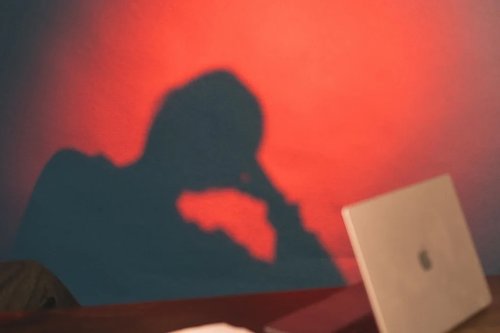
‘We need each other’: Monika Jiang on combating loneliness in hybrid work
Hybrid work offers flexibility but can leave us feeling disconnected. Monika Jiang explores how we can rebuild workplace connections.
19 déc. 2024
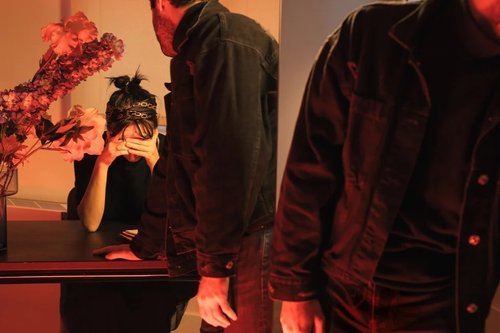
Struggling at work? Here are 3 steps to rebuilding your self-esteem
Low on confidence? Learn how reflection, recharging, and refocusing can help you rebuild self-esteem and thrive professionally.
27 nov. 2024
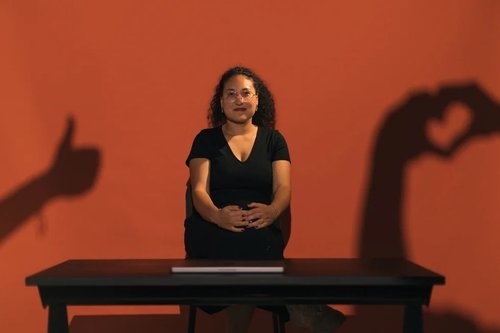
10 ways to beat the Sunday Scaries
Even people who love their jobs can experience the Sunday Scaries. Psychologist Karen Doll offers several strategies to help manage and overcome it.
12 sept. 2024
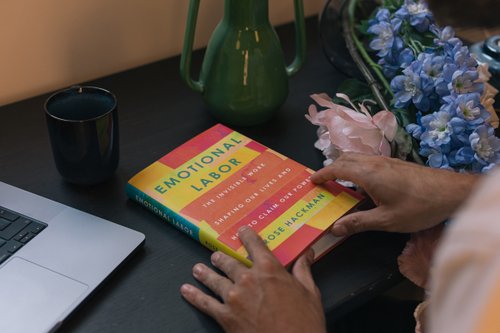
Unpacking the burden of emotional labor
Rose Hackman’s "Emotional Labor" reveals how managing emotions impacts everyone, especially women and minorities.
08 août 2024

Is financial anxiety harming your productivity?
Feeling overwhelmed by financial anxiety? You're not alone. Discover practical steps and expert advice to regain control of your work-life balance.
31 juil. 2024
La newsletter qui fait le taf
Envie de ne louper aucun de nos articles ? Une fois par semaine, des histoires, des jobs et des conseils dans votre boite mail.

Vous êtes à la recherche d’une nouvelle opportunité ?
Plus de 200 000 candidats ont trouvé un emploi sur Welcome to the Jungle.
Explorer les jobs